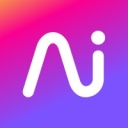Dialpad vs Google Voice: Choosing your business VoIP for effective communication
- 01Dialpad vs Google Voice: overview
- 02What's the difference between Dialpad and Google Voice?
- 03Dialpad pros and cons
- 04Google Voice pros and cons
- 05Dialpad compared to Google Voice
- 06Google Voice compared to Dialpad
- 07Features comparison
- 08Dialpad vs Google Voice: Which is the best for your business?
- 09Promotions on Call Centers software
- 10Alternatives to Dialpad & Google Voice
For modern businesses, the importance of effective and efficient communication cannot be overstated. In today’s fast-paced environment, companies need reliable tools that facilitate seamless communication not just within teams, but also directly with customers. This is where Voice over Internet Protocol (VoIP) services come into play, offering powerful features that can transform the way businesses connect with their customer base.
Dialpad and Google Voice are two prominent VoIP solutions that have garnered attention for their robust capabilities and flexible offerings. Both platforms are designed to cater to the communication needs of businesses of all sizes, from startups to large enterprises. To assist you in determining which service might be the best fit for your company, we have prepared an extensive comparison of Dialpad and Google Voice. This comparison will cover the strengths, weaknesses, and distinctive features of each platform, providing you with a clear understanding of how they stack up against each other.
Dialpad vs Google Voice: overview
Dialpad and Google Voice are notable contenders in the world of VoIP (Voice over Internet Protocol) services and communication software, each bringing distinct features and benefits to the table for businesses seeking to enhance their communication strategies.
Dialpad stands out for its emphasis on a unified communications platform. It not only provides voice services but also integrates video conferencing, messaging, and even contact center solutions in a single package. In contrast, Google Voice focuses on simplicity and integration with the Google Workspace ecosystem. It offers a straightforward VoIP solution that is particularly appealing to small businesses and startups looking for cost-effective, easy-to-deploy telephony solutions.
Now, let's explore the Dialpad vs. Google Voice comparison to assist you in choosing the right VoIP service that aligns with your specific communication needs and business objectives. Whether you prioritize a broad range of features and scalability offered by Dialpad or the simplicity and Google ecosystem integration of Google Voice, understanding the nuances of each service will empower you to make an informed decision.
What's the difference between Dialpad and Google Voice?


Dialpad and Google Voice are both distinguished VoIP (Voice over Internet Protocol) solutions, designed to streamline communication for businesses of varying sizes. However, the core difference between the two lies in their target audience, feature set, and integration capabilities, which can significantly influence a business's choice based on its specific needs and existing tech stack.
Dialpad is renowned for its comprehensive and scalable communication solutions, catering to a broad range of business requirements from small startups to large enterprises. It offers a unified platform that encompasses voice calls, video conferencing, SMS, and team messaging, integrated into a single interface. This integration aims to enhance team collaboration and efficiency. A standout feature of Dialpad is its use of artificial intelligence (AI) to provide real-time call transcriptions, sentiment analysis, and voice analytics, which can be particularly beneficial for sales and customer support teams looking to gain insights from their calls and improve customer interactions.
On the other hand, Google Voice is designed with simplicity and cost-efficiency in mind, making it an attractive option for small businesses and individuals. Its integration with the Google Workspace (formerly G Suite) ecosystem allows for seamless operation with Google's suite of applications like Gmail, Calendar, and Meet, providing a straightforward solution for businesses already using these tools. While Google Voice offers essential VoIP features such as voicemail transcription, call forwarding, and spam filtering, it lacks the advanced functionalities and customizability that Dialpad offers, such as CRM integration, AI-driven insights, and comprehensive call management features.
Pricing structures between Dialpad and Google Voice also differ, with Dialpad offering tiered pricing plans that scale with the size and needs of a business, including enterprise-level support and SLAs (Service Level Agreements). Google Voice, while offering competitive pricing, operates with a more straightforward model, making it accessible for smaller teams but potentially limiting for businesses looking for more advanced features and customization options.
In summary, while both Dialpad and Google Voice serve the fundamental purpose of facilitating business communication over the internet, Dialpad offers a more robust, feature-rich platform suited for businesses looking for growth and scalability. In contrast, Google Voice provides an economical and simplified solution for small businesses or those heavily integrated with Google Workspace.
Dialpad pros and cons
What are the advantages of Dialpad?
- Ease of use: Dialpad is known for its intuitive interface and easy setup process. Users can quickly get started without extensive training, which can save time and resources for businesses.
- Scalability: It is highly scalable, making it suitable for businesses of all sizes. Whether you're a small startup or a large enterprise, Dialpad can accommodate your needs and grow with your business.
- Unified communications: Dialpad integrates voice, video, and messaging services into one platform, providing a unified communications solution. This integration improves collaboration and productivity among team members.
- Mobile compatibility: Dialpad offers mobile apps for iOS and Android devices, allowing users to stay connected and productive on the go. This flexibility is particularly beneficial for remote workers or employees who frequently travel.
- Advanced features: Dialpad offers a range of advanced features such as call analytics, call recording, voicemail transcription, and AI-powered insights. These features help businesses improve communication efficiency and gain valuable insights into their operations.
What are the disadvantages of Dialpad?
- Reliance on internet connection: Since Dialpad is a cloud-based service, it relies on a stable internet connection. Poor internet connectivity can lead to dropped calls or degraded call quality, which may disrupt business operations.
- Cost: While Dialpad offers various pricing plans to accommodate different budgets, some businesses may find the costs to be relatively high, especially when compared to traditional phone systems.
- Limited customization: Although Dialpad offers a range of features, some users may find the level of customization to be limited compared to other solutions. Businesses with specific needs or preferences may require additional customization options.
- Integration limitations: While Dialpad integrates with several popular business applications such as G Suite, Office 365, and Salesforce, its integration options may be limited compared to other unified communications platforms. Businesses with complex integration requirements may face challenges.
- Customer support: While Dialpad offers customer support via phone, email, and chat, some users have reported issues with response times or the effectiveness of support agents. Improvements in customer support responsiveness could enhance the overall user experience.
Compare Dialpad to other tools
Google Voice pros and cons
What are the advantages of Google Voice?
- Free or low-cost: Google Voice offers a free basic plan with features like voicemail, call forwarding, and texting. For more advanced features, such as international calling, Google Voice offers competitive rates, often lower than traditional phone service providers.
- Integration with Google services: Google Voice seamlessly integrates with other Google services such as Gmail, Google Calendar, and Google Contacts. This integration streamlines communication and enhances productivity, especially for users already heavily invested in the Google ecosystem.
- Flexibility and portability: Google Voice provides users with a single phone number that can be used across multiple devices, including smartphones, tablets, and computers. This portability allows users to stay connected from anywhere, using any internet-connected device.
- Voicemail transcription: Google Voice transcribes voicemails into text, making it easier for users to quickly review messages without having to listen to them. This feature can be particularly helpful for users who prefer reading or need to archive voicemail messages.
- Call screening and blocking: Google Voice offers call screening and blocking features, allowing users to filter calls based on criteria such as caller ID or specific numbers. This helps users avoid unwanted calls and maintain control over their communications.
What are the disadvantages of Google Voice?
- Limited international coverage: While Google Voice offers competitive rates for international calling, its coverage may be limited in some regions. Users in certain countries may not be able to access Google Voice or may experience restrictions on certain features.
- Reliance on internet connection: Like other VoIP (Voice over Internet Protocol) services, Google Voice relies on a stable internet connection. Poor internet connectivity can result in dropped calls or degraded call quality, particularly in areas with unreliable internet infrastructure.
- Limited customer support: Google Voice primarily relies on online resources such as help articles and community forums for customer support. Users may find it challenging to receive timely assistance for technical issues or account inquiries.
- Integration with non-Google platforms: While Google Voice integrates seamlessly with Google services, its compatibility with non-Google platforms and applications may be limited. Users who rely heavily on non-Google tools may encounter difficulties in integrating Google Voice into their existing workflows.
- Privacy concerns: Google Voice is a product of Google, a company known for its data collection practices. Some users may have concerns about privacy and data security, particularly regarding the collection and use of personal information for targeted advertising or other purposes.
Compare Google Voice to other tools
Dialpad compared to Google Voice
Dialpad and Google Voice are both communication platforms offering distinct features and benefits. Dialpad excels in its seamless integration of voice, video, and messaging services, ideal for businesses seeking unified communications solutions. It boasts advanced features like call analytics and mobile compatibility, catering to diverse business needs. However, Dialpad's cost and reliance on internet connectivity may pose challenges for some users.
On the other hand, Google Voice provides a free or low-cost option with excellent integration with Google services, appealing to individuals and small businesses. Yet, it may lack the advanced features and scalability needed by larger enterprises, making it less suitable for complex communication needs.
Is Dialpad better than Google Voice?
Comparing Dialpad to Google Voice involves considering different user needs and preferences. Dialpad offers a robust suite of services that integrates voice, video, and messaging into a seamless experience, making it an excellent choice for businesses that need advanced features like call analytics and superior mobile integration. Its capabilities are designed to support a range of business communications needs, although its cost and dependence on internet connectivity can be drawbacks for some.
Google Voice, in contrast, stands out for individuals and small businesses due to its affordability and tight integration with other Google services. However, its limitations in features and scalability may not meet the demands of larger organizations looking for comprehensive communication solutions.
What is Dialpad best used for?
Dialpad is best used for businesses seeking a comprehensive and unified communication solution. With its intuitive interface and advanced features, Dialpad streamlines voice, video, and messaging services, enhancing collaboration and productivity among team members. It is particularly beneficial for businesses of all sizes looking for scalability, as Dialpad can accommodate the needs of small startups to large enterprises.
Additionally, its mobile compatibility makes it ideal for remote work environments, allowing users to stay connected and productive on the go. Whether for internal team communication or engaging with clients, Dialpad offers a versatile platform tailored to meet modern business communication needs.
Can Dialpad replace Google Voice?
While Dialpad offers robust communication features, it may not entirely replace Google Voice for all users. Dialpad excels in business environments with its advanced functionalities like call analytics and seamless integration of voice, video, and messaging services.
However, Google Voice, with its free or low-cost options and tight integration with Google services, remains popular among individuals and small businesses. Google Voice's simplicity and portability make it an attractive choice for personal use or small-scale communication needs.
Is Dialpad cheaper than Google Voice?
Determining whether Dialpad is cheaper than Google Voice depends on the specific needs and usage patterns of the user or organization. While Dialpad offers various pricing plans tailored for businesses with advanced features and scalability, Google Voice provides a free or low-cost option, particularly suitable for individuals and small businesses.
Dialpad's pricing may be higher for businesses requiring advanced functionalities and larger-scale communication needs. Conversely, Google Voice's affordability makes it an attractive choice for those seeking basic communication features without additional expenses.
Is there a better Call Centers software than Dialpad?
While Dialpad offers a range of communication features and solutions, it's worth exploring whether there might be a better software option suited to your specific requirements.
There are several notable alternatives to Dialpad in the communication and collaboration space, including Microsoft Teams, RingCentral, Zoom Meetings, and Cisco Webex Calling.
The decision to choose a communication platform should be based on a thorough assessment of your organization's unique needs, team collaboration requirements, scalability considerations, and budget constraints. While Dialpad provides advanced features and scalability, other platforms may offer specialized functionalities or integrations that better align with your communication strategy and objectives.
Google Voice compared to Dialpad
Google Voice and Dialpad are both communication platforms offering distinct features and benefits. Google Voice provides a free or low-cost option with seamless integration into the Google ecosystem, appealing to individuals and small businesses. Its simplicity and portability make it ideal for personal use or small-scale communication needs.
On the other hand, Dialpad excels in business environments with its advanced functionalities like call analytics and unified communication solutions. It caters to businesses of all sizes, offering scalability and mobile compatibility for enhanced productivity.
Is Google Voice better than Dialpad?
When debating whether Google Voice is superior to Dialpad, the answer largely depends on the user's specific requirements and context. Google Voice shines as a cost-effective and straightforward solution, particularly appealing for personal use or small businesses not requiring complex communication tools. Its integration with Google's ecosystem and the emphasis on simplicity and portability are significant advantages for those looking for efficient, basic communication tools.
In contrast, Dialpad positions itself as the go-to for larger businesses or those with more sophisticated communication needs, offering advanced features and scalability that Google Voice lacks. For users prioritizing advanced functionality and business integration, Dialpad might be the better choice, while Google Voice appeals to those valuing simplicity and cost-efficiency.
What is Google Voice best used for?
Google Voice is best used for individuals and small businesses seeking a versatile and cost-effective communication solution. With its free or low-cost options, Google Voice offers essential features like voicemail transcription, call forwarding, and text messaging, making it ideal for personal use or small-scale communication needs. Its seamless integration with other Google services such as Gmail and Google Calendar enhances productivity and organization.
Additionally, Google Voice's portability allows users to stay connected across multiple devices, making it convenient for those on the go. Whether for personal communication or small business operations, Google Voice provides a reliable and user-friendly platform.
Can Google Voice replace Dialpad?
Determining whether Google Voice can entirely replace Dialpad depends on the specific requirements and scale of communication needs. While Google Voice offers essential communication features at a lower cost, it may lack the advanced functionalities and scalability required by businesses. Dialpad excels in business environments with its unified communication solutions, advanced features like call analytics, and scalability for organizations of all sizes.
While Google Voice is suitable for individuals and small businesses seeking a cost-effective option, Dialpad provides a more comprehensive solution tailored to the communication needs of businesses, particularly those requiring advanced features and scalability.
Is Google Voice cheaper than Dialpad?
Determining whether Google Voice is cheaper than Dialpad depends on the specific needs and scale of communication. Google Voice’s free or low-cost options make it particularly attractive for individuals and small businesses with basic communication needs. Its affordable pricing and integration with other Google services provide added value for users.
In contrast, Dialpad offers advanced communication features and scalability tailored for businesses, which may come at a higher cost.
Is there a better Call Centers software than Google Voice?
When considering Google Voice, it's crucial to explore whether there might be a more suitable software solution for your specific communication needs.
There are several notable alternatives to Google Voice in the communication and collaboration space, including Dialpad, Vonage, OpenPhone, CallHippo, and WhatsApp.
The decision to choose a communication platform should be based on a thorough assessment of your organization's unique requirements, team collaboration needs, scalability considerations, and budget constraints. While Google Voice offers essential communication features and affordability, other platforms may offer advanced functionalities or integrations that better align with your communication strategy and objectives.
Features comparison
Dialpad Outperforms Google Voice for Virtual Phone Systems

Dialpad surpasses Google Voice with its virtual phone system feature, a crucial tool for businesses aiming to maintain a professional phone presence regardless of their location. Unlike Google Voice, Dialpad offers this feature, allowing businesses to establish local, toll-free, or international numbers and manage calls efficiently.
For instance, Dialpad enables users to set up auto-attendant menus and call routing rules, enhancing customer experience and professionalism. This convenience and flexibility are indispensable for businesses striving to uphold a professional image while operating remotely or across various locations, giving Dialpad a distinct advantage in virtual phone systems.
Google Voice Surpasses Dialpad with Personalized Greetings

Google Voice outshines Dialpad with its provision of personalized greetings for specific callers, enhancing professionalism and customer experience. While Dialpad offers AI-powered transcription for call note-taking convenience, Google Voice's ability to customize greetings adds a personalized touch to interactions.
For instance, users can set up personalized greetings for important clients or VIP customers, offering a more tailored and welcoming experience. This level of customization not only enhances customer satisfaction but also elevates the perceived professionalism of the organization, making Google Voice a more compelling choice in this aspect of communication solutions.
Dialpad and Google Voice are Equally Effective in International Calling

Both Dialpad and Google Voice offer cost-effective solutions, facilitating global connectivity without breaking the bank. For instance, Dialpad provides competitive international calling rates, enabling businesses and individuals to communicate seamlessly across borders without incurring exorbitant expenses.
Similarly, Google Voice offers affordable international calling options, with rates varying based on the destination country, ensuring accessibility to global communication. By reducing barriers to international connectivity, both platforms empower users to conduct business, connect with loved ones, or collaborate with colleagues worldwide, fostering a more interconnected global community.
Google Voice Leads in Spam Filtering Over Dialpad

While both Dialpad and Google Voice offer international calling and unified communication tools, Google Voice outshines Dialpad with its robust capability to effectively filter out unwanted calls, setting it apart in the market. Unlike Dialpad, Google Voice employs advanced algorithms to detect and block spam calls, minimizing disruptions and enhancing user productivity.
For instance, Google Voice utilizes caller ID and user feedback to identify and filter out potential spam calls automatically. This feature is particularly beneficial for businesses and individuals dealing with high call volumes, ensuring a smoother communication experience. Therefore, Google Voice's superior spam filtering capability gives it a distinct advantage over Dialpad in this aspect.
Google Voice Excels in User-Friendliness Compared to Dialpad

When it comes to ease-of-use, Google Voice inches ahead of Dialpad. With its intuitive interface and seamless integration with the Google ecosystem, Google Voice offers a straightforward communication solution for both individuals and small businesses. For instance, Google Voice's integration with Gmail allows users to access voicemails and texts directly from their email inbox, streamlining communication workflows.
On the other hand, while Dialpad also offers a user-friendly interface, some users may find Google Voice's familiarity and simplicity more appealing, especially those accustomed to Google's suite of products. Thus, in terms of ease-of-use, Google Voice emerges as the preferred choice.
Google Voice Leads in Integration Capabilities Over Dialpad

In terms of integration capabilities, it's a close call between Dialpad and Google Voice. However, Google Voice edges slightly ahead. Its seamless integration with Google Workspace apps, including Gmail, Calendar, and Contacts, enhances productivity by combining communication tools with essential productivity platforms. For example, users can initiate calls directly from Gmail or access voicemails within their Calendar events, streamlining workflows.
While Dialpad competes strongly with integrations like Salesforce, HubSpot, and Slack, Google Voice's native integration with Google Workspace gives it a slight edge, particularly for businesses heavily reliant on Google's suite of tools. Thus, for organizations leveraging Google Workspace, Google Voice offers superior integration capabilities.
Dialpad Leads with Customizable Call Routing Over Google Voice

Dialpad surpasses Google Voice with its customizable call routing feature, elevating efficiency and customer service. Unlike Google Voice, Dialpad offers personalized call routing options, automatically directing incoming calls to the most appropriate person or department based on predefined rules.
For example, Dialpad enables users to set up specific routing criteria such as time of day, caller ID, or department, ensuring calls are efficiently handled and customers receive prompt assistance. This level of customization enhances productivity and customer satisfaction, positioning Dialpad as a preferred choice for businesses seeking tailored and efficient communication solutions.
Subscribe to our newsletters.
No FOMO here. Stay up-to-date on all the latest deals and news with our monthly newsletter straight to your inbox like 127,000+ entrepreneurs (+ Get 10% off on on our Premium Membership!)
Dialpad vs Google Voice: Which is the best for your business?
Dialpad is the best tool for you if:
- Your business demands advanced call analytics and AI-powered insights to improve customer interactions and sales strategies, offering valuable data to refine communication tactics.
- You need a comprehensive communication solution that seamlessly integrates voice, video, and messaging within a single platform, enhancing collaboration among team members across different locations.
- Scalability is crucial for your growing business, requiring a system that can easily adjust to increasing demands without compromising on performance or reliability.
- Mobile compatibility and the flexibility to work from anywhere are top priorities, with Dialpad providing a robust mobile app that ensures productivity on the go.
- You're looking for a unified communications platform that offers integration with other business tools and services, streamlining workflows and improving efficiency across your organization.
Google Voice is the best tool for you if:
- You value simplicity and cost-effectiveness in your communication tools, with Google Voice offering a free or low-cost option that's perfect for individuals and small businesses.
- Seamless integration with the Google ecosystem is important to you, enabling easy access to emails, calendars, and documents for a more streamlined workflow and collaboration.
- Portability and flexibility are key, as Google Voice allows you to make and receive calls from any device, ensuring you stay connected wherever you go.
- You do not require advanced telephony features and prefer a straightforward solution for calls, text messages, and voicemail, all managed through an intuitive interface.
- Your primary need is for a reliable communication tool that supports basic call management features like call forwarding, voicemail transcription, and spam filtering without the need for complex setups.
Alternatives to Dialpad & Google Voice
Promotions on Call Centers software
Start saving on the best SaaS with Secret.
Secret has already helped tens of thousands of startups save millions on the best SaaS like Dialpad, Google Voice & many more. Join Secret now to buy software the smart way.








